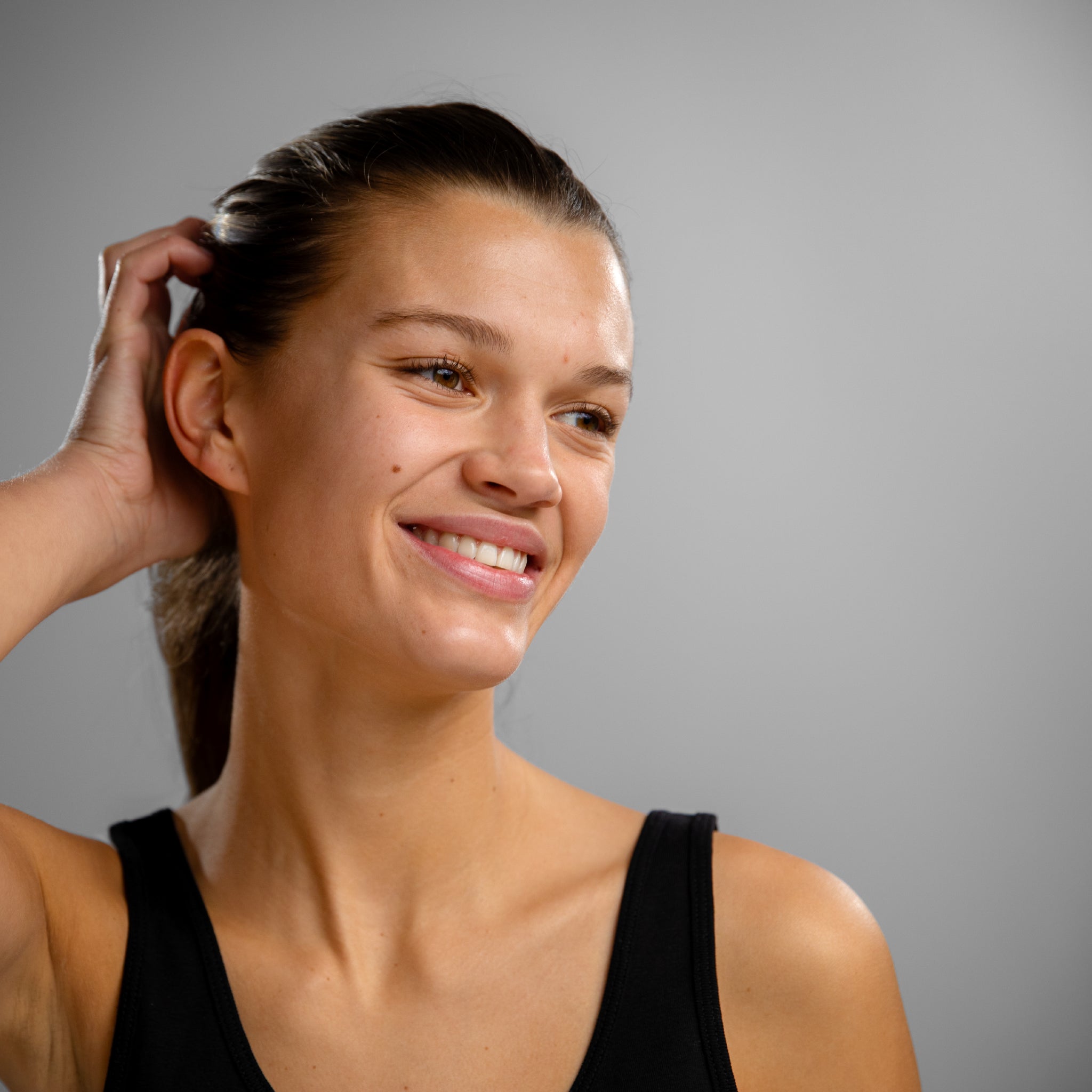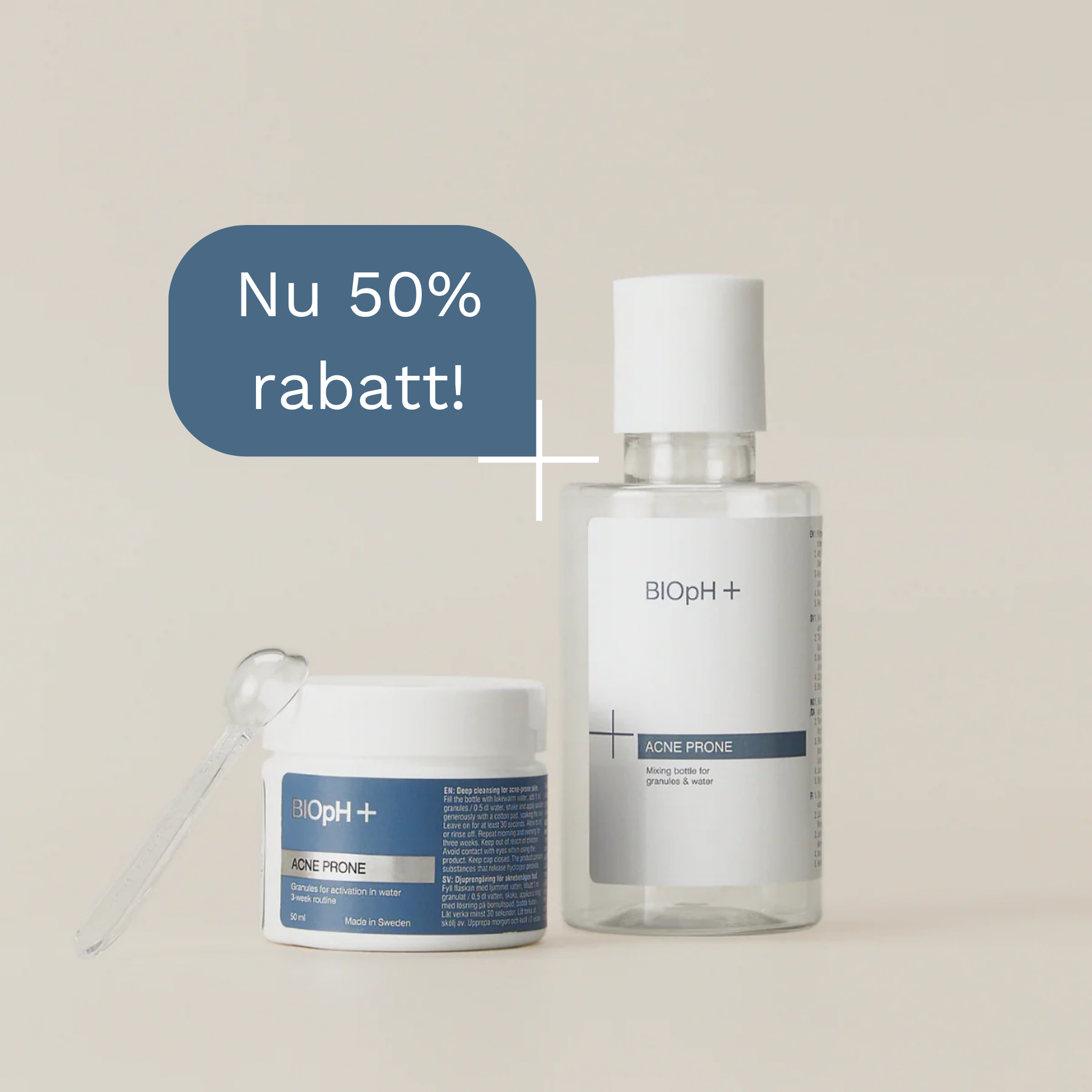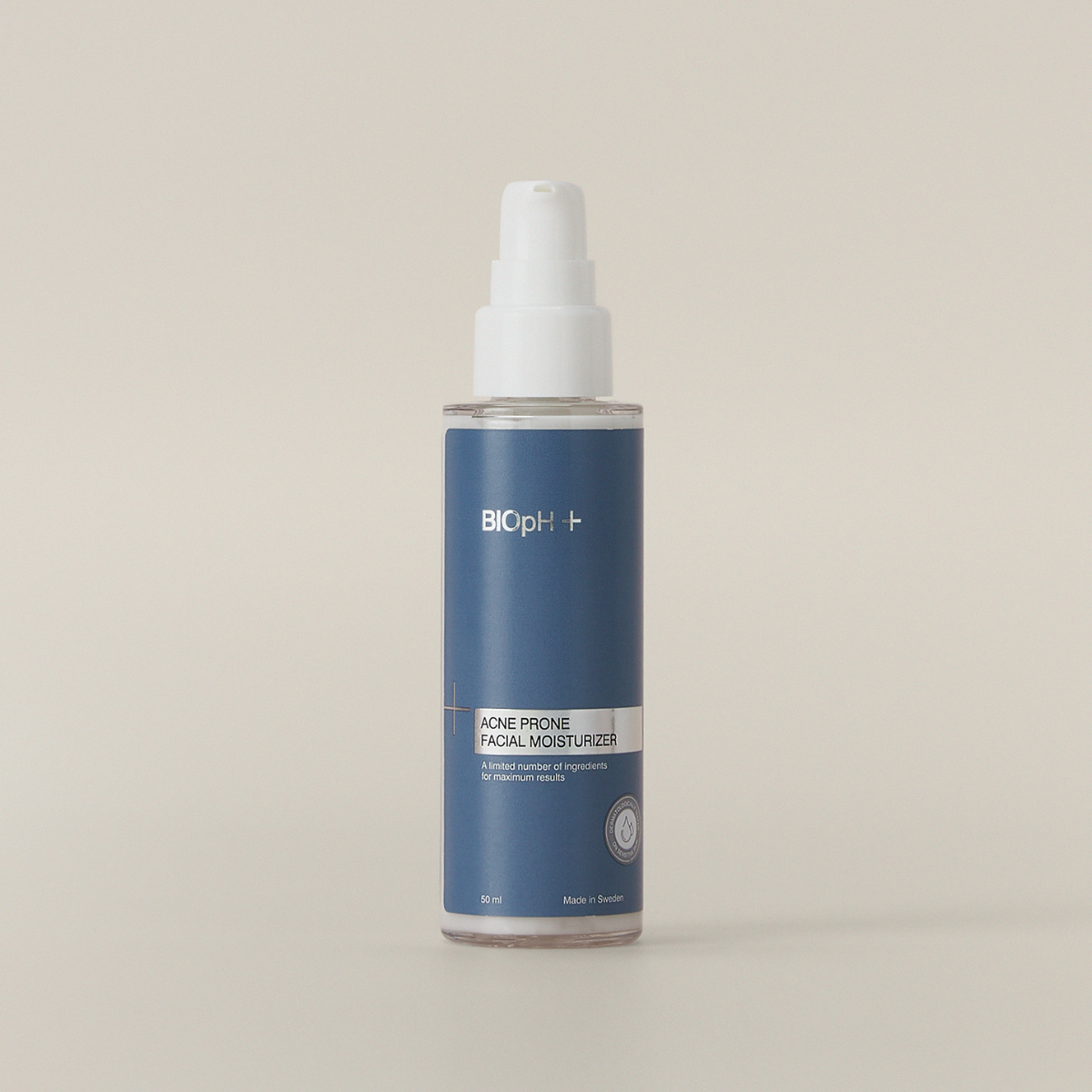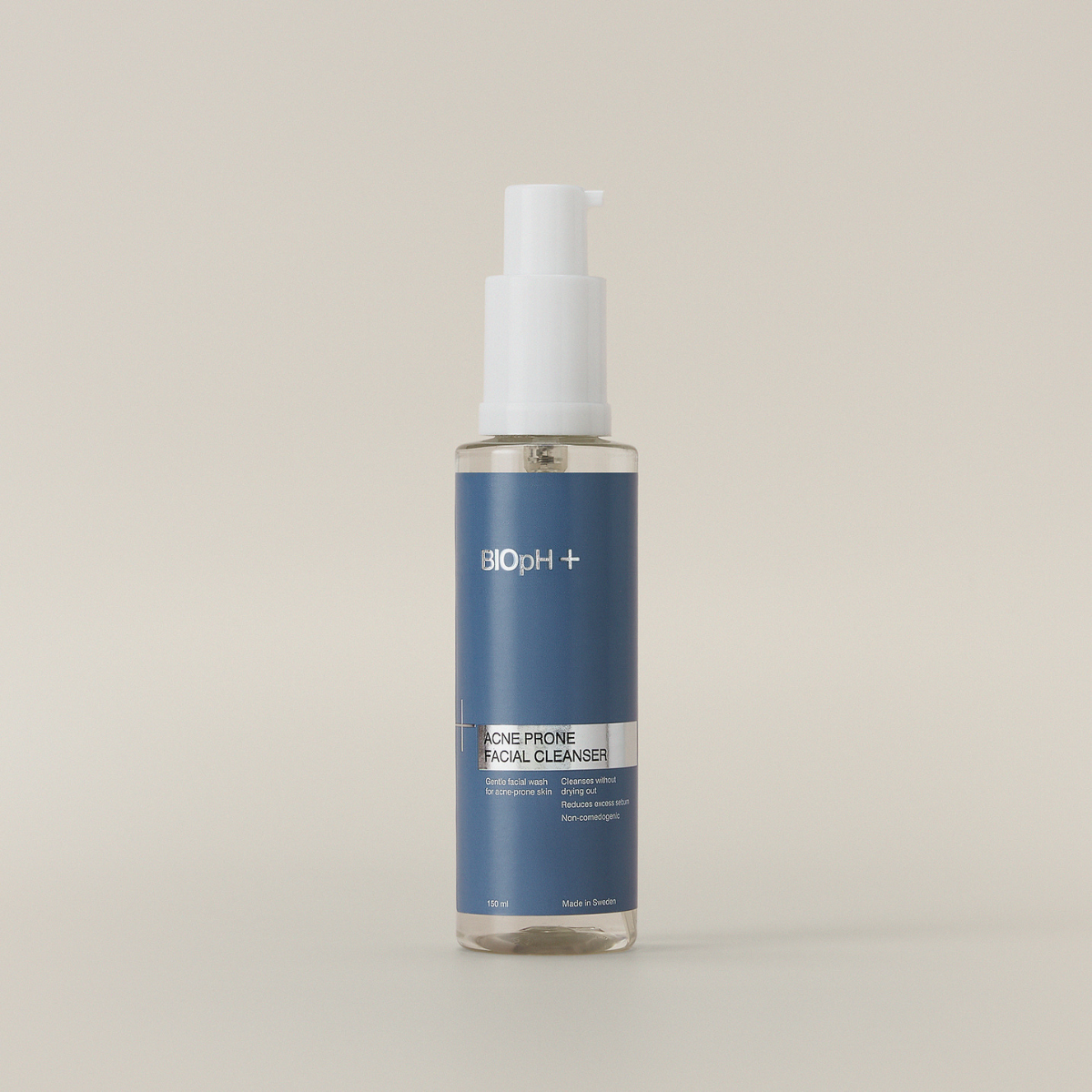The causes of acne can be several and affect most people at some point in their lives. From minor outbreaks every now and then to more long-term problems. The basis of good skin care for acne is to give the skin the right conditions to do its job and repair itself. BIOpH Acne prone active solution is a product that creates these conditions by removing what should not be on the skin. Complete with our face wash and face cream for best results.
How to choose good acne products?
In case of overproduction of sebum and dead skin cells, inflammation can occur in the pores, which can lead to breakouts of pimples. Good anti-acne products clean and hydrate the skin without causing further clogging of the pores. That is, non-comedogenic products.
BIOpH's complete product line for acne-prone skin is developed together with dermatologists. The series consists of three products;
BIOpH Acne prone facial cleanser
Start by using our foaming and fragrance-free cleanser. It helps preserve the skin's moisture balance, reduce excess sebum and gives a clean feeling.
BIOpH Acne prone active solution
Then mix our Acne prone active solution using the three-part kit that includes: Active solution powder, an activation bottle and a measuring cup. The product, which can be used either as a spot treatment or all over the face, removes stubborn and recurring impurities while soothing the skin, providing an even skin tone and creating radiance.
BIOpH Acne prone facial moisturizer
Then finish the routine with our moisturizing cream Acne prone facial moisturizer. It is a thin and gentle moisturizer that does not clog pores - specially developed for you with oily, acne-prone and sensitive skin.
What is acne-prone skin and how do you take care of it?
Acne-prone skin is characterized by overproduction of sebum (fat) and clogged pores. It can lead to breakouts and recurring blemishes. People with acne-prone skin often find that it is sensitive and easily irritated and inflamed.
The skin care routine should consist of a gentle face wash to remove make-up and oil and an active treatment product that cleans the pores in depth and removes dead skin cells. It is important to moisturize with a moisturizer that does not clog pores.
Special cream for acne
BIOpH's moisturizer contains soothing ingredients and is developed together with skin therapists. The light formulation means that the cream is quickly absorbed by the skin without clogging the pores or feeling sticky. When choosing a cream for acne, it is important that it does not contain, for example, oil that can clog the pores or perfume that can irritate the skin.
BIOpH - a Swedish patented innovation
BIOpH Acne prone active solution is based on a Swedish patented innovation. The basis of the treatment is a powder, which in contact with water, is activated and forms a chemical reaction, a kind of oxygen explosion. The solution penetrates deeply and cleans deeply while removing dead skin cells. It creates an environment on the skin that provides the best conditions for a normal skin condition.
FAQ - Common questions & answers
What should I do to get rid of acne?
Acne is a common problem, but there is help. Use products specially formulated for acne-prone skin. Wash your face a maximum of twice a day with a mild facial cleanser. Exfoliate and deep clean regularly and moisturize with a non-greasy cream. The products should be non-comedogenic, meaning they won't clog pores. Avoid squeezing pimples as the inflammation may worsen.
Why do you get acne on your face?
One of the causes of acne is overproduction of sebum (fat) produced in the sebaceous glands. Sebum clogs pores and blocks hair follicles. Bacteria collect in the clogged pores and cause inflammation and bulges, pimples. We have the most sebaceous glands on the face and back, which is why acne is most common there.
What is the cause of acne?
Acne is caused by overproduction of sebum (fat) in the hair follicles. The hair follicles become clogged with sebum and dead skin cells with bacteria that cause inflammation. Acne can be caused by several factors such as genetics, hormones, diet and stress. Make-up and skin care products that are comedogenic (pore-clogging) can also cause acne. Therefore, use non-comedogenic products adapted for acne-prone skin.
What is the difference between acne and pimples?
Acne and pimples can be the same thing, but they don't have to be. Pimples are the bumps you see on the skin when a hair follicle has become clogged with sebum (fat) and dead skin cells. A pore mask forms inside the pimple. The hair follicle often becomes inflamed. If you have acne, you usually have many pimples in one area, e.g. the face or on the back. Pimples usually mean individual inflamed hair follicles.
Can acne go away?
Yes, you can get rid of acne. Mild acne usually clears up on its own, but there is help to speed up the process. With the right products and treatment, you can reduce the likelihood of breakouts, clear out infections and prevent long-term skin damage in the form of scarring. Use products specially adapted for acne-prone skin.
Why have I suddenly got pimples?
Pimples can affect people of all ages and several causes can be behind it. Hormones, stress, cosmetics and diet can all cause pimples. Hormonal imbalance and stress are two common triggers. Different stages in life, e.g. puberty, menopause or pregnancy, can change the hormones in the body. It can cause overproduction of sebum (fat) in the skin which can cause pimples.
Why have I suddenly got pimples?
Pimples can affect people of all ages and several causes can be behind it. Hormones, stress, cosmetics and diet can all cause pimples. Hormonal imbalance and stress are two common triggers. Different stages in life, e.g. puberty, menopause or pregnancy, can change the hormones in the body. It can cause overproduction of sebum (fat) in the skin which can cause pimples.
Can you get acne from stress?
Stress affects our body more than many people think. Underneath, our bodies produce more hormones. Among other things, hormones that stimulate the production of oil from the sebaceous glands - which clogs the pores and triggers breakouts. A little stress now and then is not dangerous for the body and is not what triggers acne. However, prolonged stress can worsen the situation if you have acne-prone skin.




